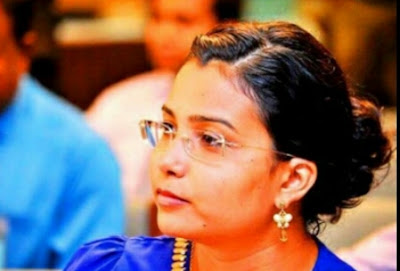First Elected President
The persistence and perseverance of the Maldivian Democratic Party MDP behind the then activist Nasheed, led to a successful campaign spreading awareness across the archipelago. Trying to make the Maldivians aware of freedom and democracy came at a price of several months of jail time, with different accusations ranging from terrorism to inciting violence.
Though, with all the challenges faced and through the struggle of parliament members, MDP was able to test the waters of the political situation in Maldives via a referendum. MDP took the side of a Parliamentarian System while Gayoom campaigned for a Presidential System.
In August 2007, voters decided via referendum that the Maldives' new constitution should provide for a Presidential System of Government (Instead of Parliamentary System). The special Majlis completed its work and the new constitution took effect in August 2008.
n accordance with the new constitution ratified by the then President, Gayoom on August 7, 2008, the first round of presidential elections was held on October 10, 2008. Five opposition leaders were allowed to contest the presidential elections.
As no candidate received 50 percent of the vote, a second round was held on October 29, between President Gayoom and the principal opposition candidate President Nasheed. With the new allies formed between Nasheed and the majority of the other contesters, Nasheed won with 54 percent of the vote, becoming the first democratically elected president of the Republic of Maldives.
Gayoom accepted defeat by stating "I accept the results of the.. run-off election and I respectfully congratulate Mr. Mohamed Nasheed and his party."
While Nasheed humbled himself and promised that he would not take action against the man whose security forces have tortured him, fed him ground glass and kept him in solitary confinement for as long as eighteen months at a stretch. "He is going to be staying with us. I don't think we should be going for a witch-hunt and digging up the past".
What was displayed after the democratic election between the autocrat who had ruled the country for 30 years, and a young-blooded president who was harmed several times as an opponent, was unique by all means. A rare case, as the world has experienced violence and blood shed as a consequence of bringing down dictators.
Regardless of this apparent peaceful transition, those with knowledge in the area knew that President Nasheed will face unprecedented challenges. This challenge will literally equal that of violence and bloodshed faced when bringing down a dictator. There were forces well placed in all the institutions of the nation. They did not want the change as President Gayoom single-handedly built the modern Maldivian economy that rests on high-end tourism, vesting all the wealth and power around a handful of his family and friends. The well fed businessmen of 30 years were well rooted in corruption and unethical practices for which they would certainly face the consequences if Nasheed was to execute his vision for "The Other Maldives".
Nasheed was given the burden and responsibility to reform all aspects of Maldives. This included the most tedious and dangerous task of reforming a well painted economy making Maldives the richest country in South Asia. The vast majority of the country was not helped to overcome the poverty line with this well-orchestrated economy. "People have seen a tiny group of people get very, very rich in the last thirty years. Meanwhile we have no communications between our islands. Our health system is in a bad way, People wanted a change from all this" said a spokesman for the MDP, Naseem Mohamed. Overcoming these issues came as a challenge as each and every resource of the country had very close ties with the politicians and businessman spoon-fed by Gayoom during his 30 years of repression.








